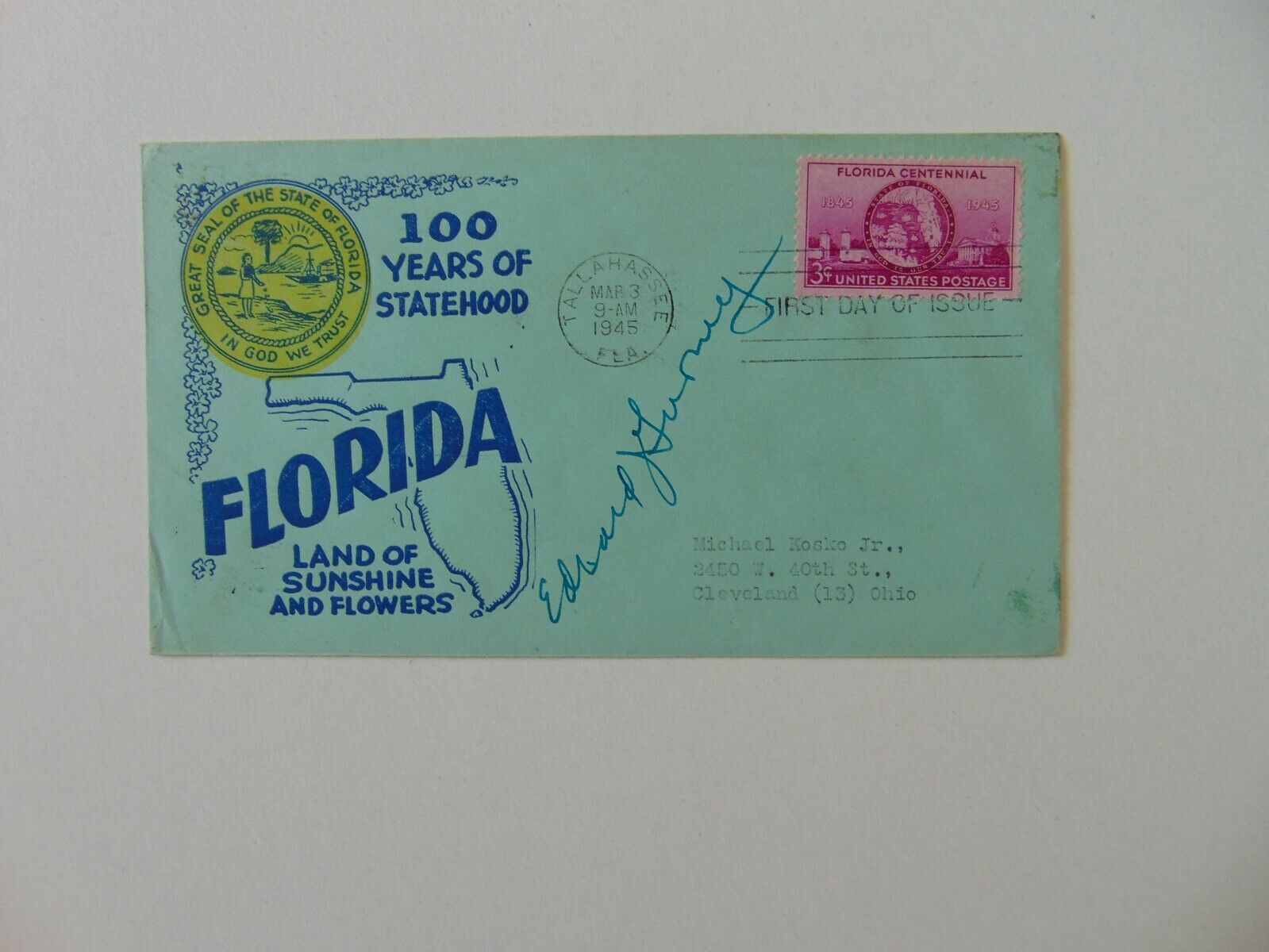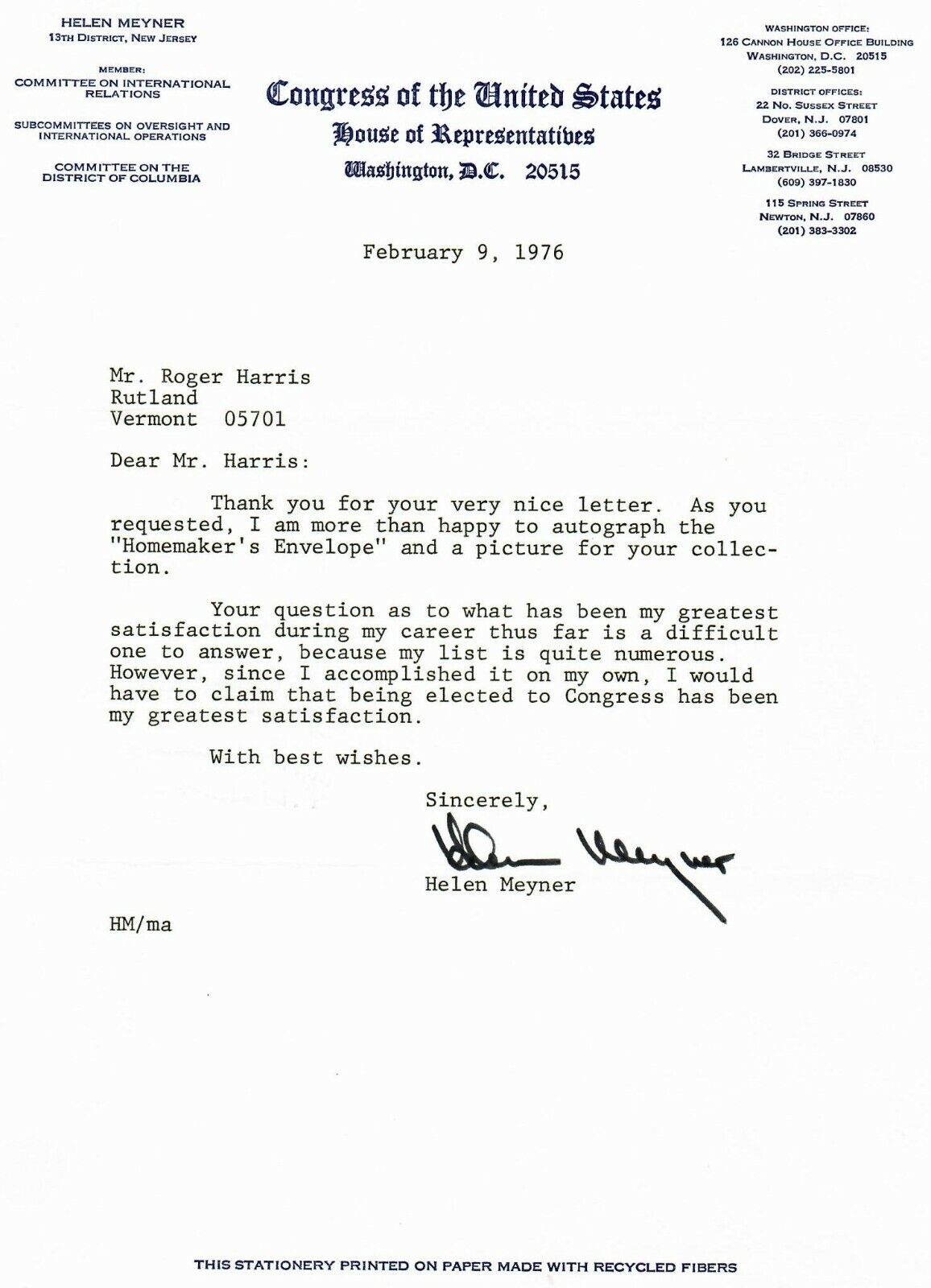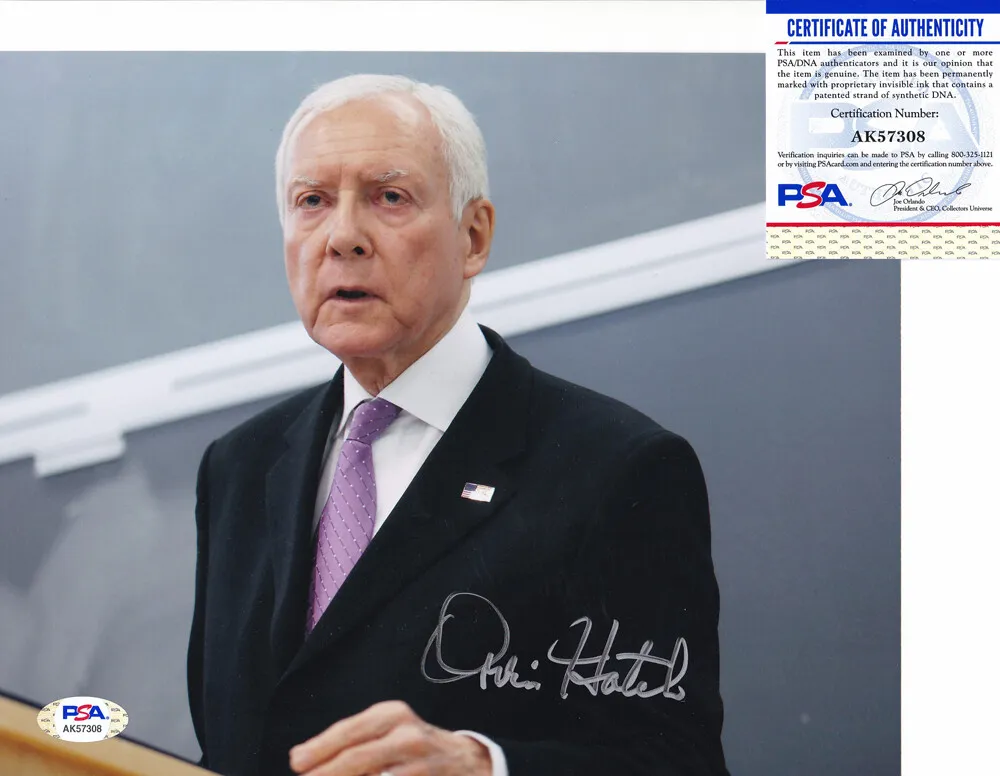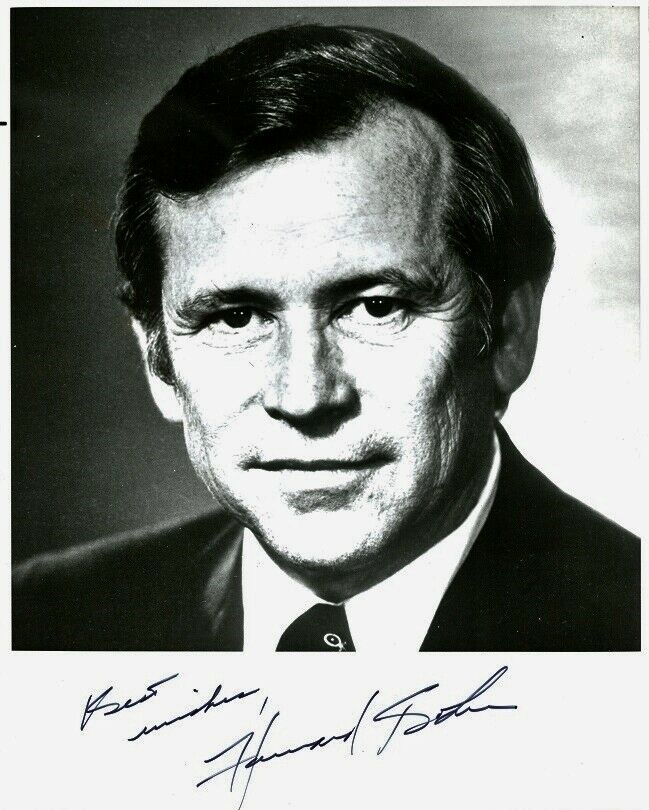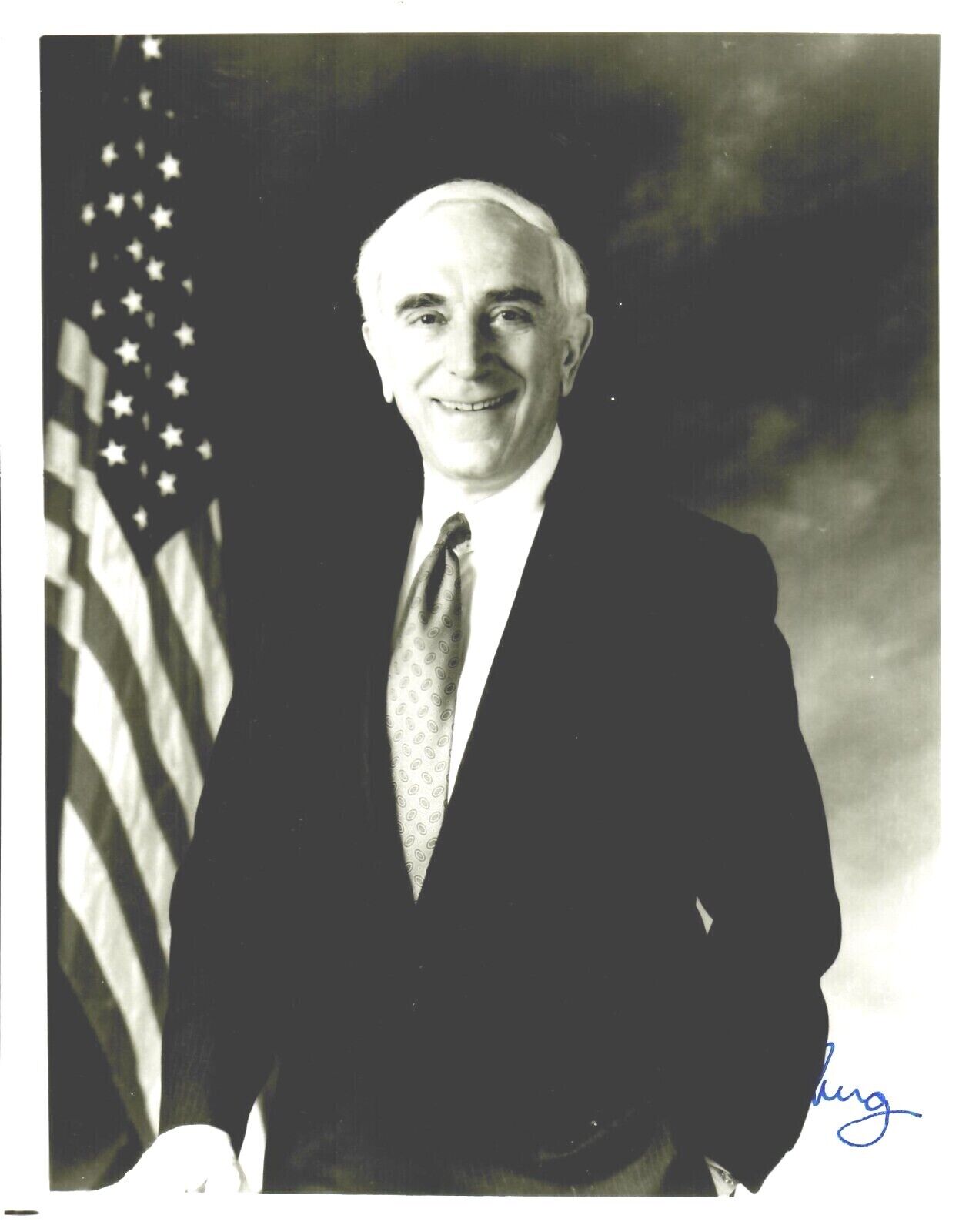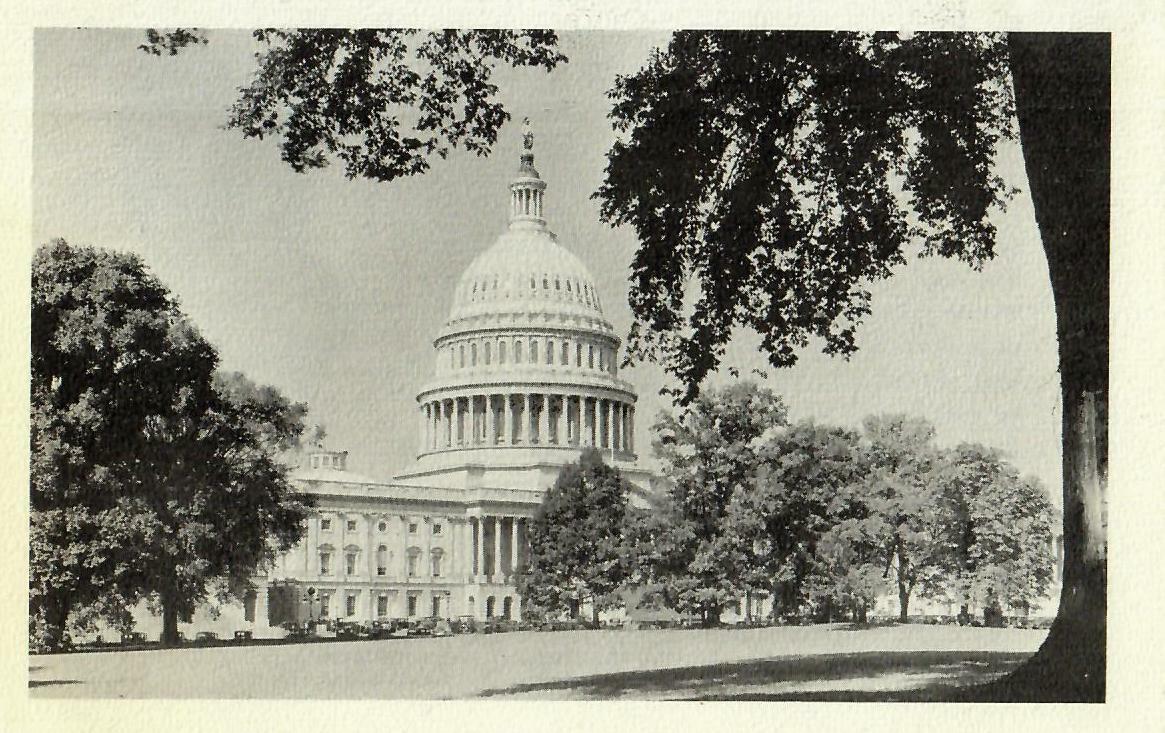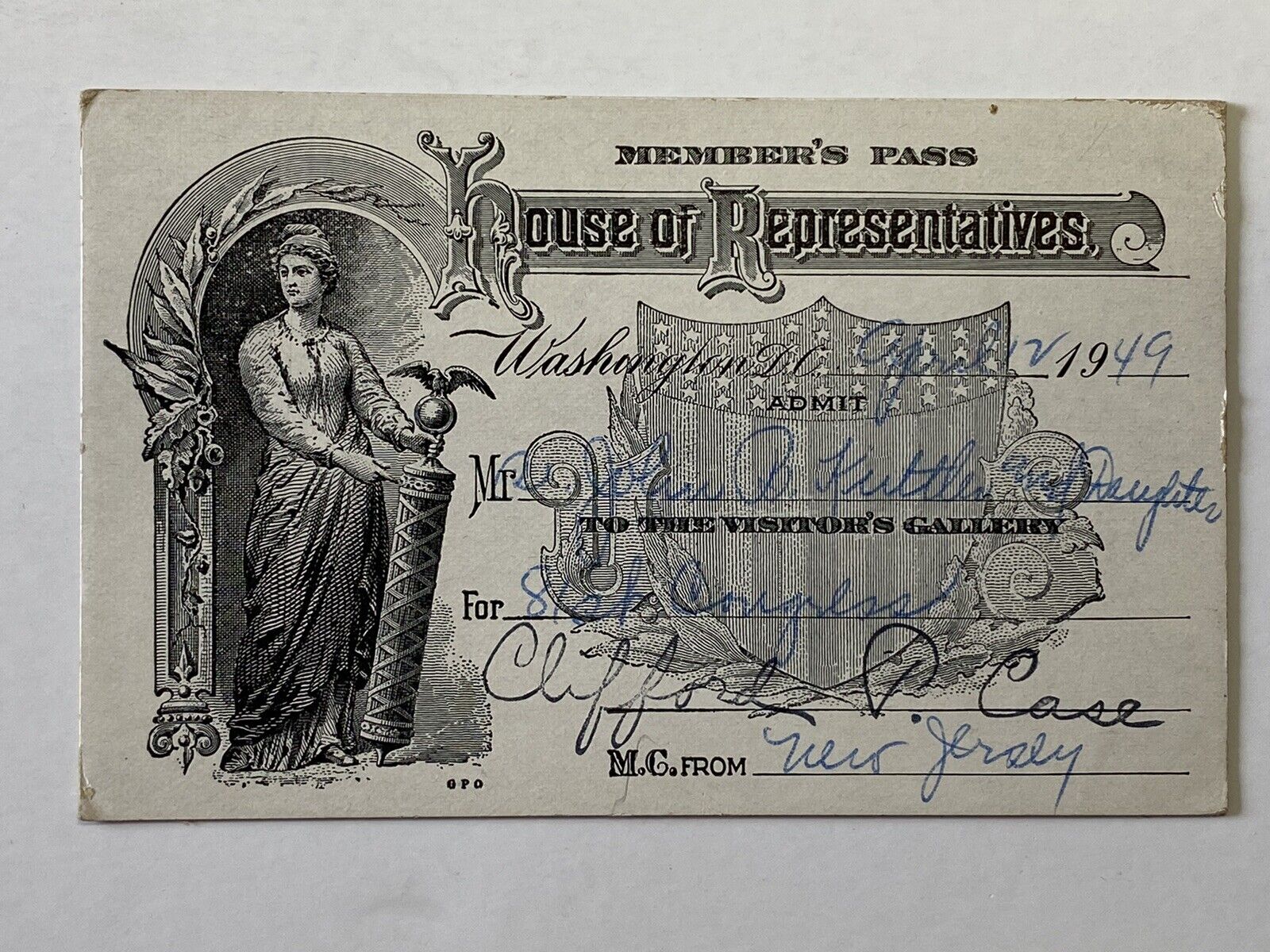-40%
"Florida Senator" Edward Gurney Hand Signed FDC Dated 1945 Todd Mueller COA
$ 25.86
- Description
- Size Guide
Description
Up for auction "Florida Senator" Edward Gurney Hand Signed First Day Cover Dated 1945.This item is certified authentic by Todd Mueller Autographs and comes with their Certificate of Authenticity.ES-3776D
Edward John Gurney
(January 12, 1914 – May 14, 1996) was an attorney and an
American politician
based in
Florida
, where he served as a
Representative
and a
United States Senator
. Born and reared in
Portland, Maine
, Gurney moved to Florida after his service in World War II. Elected to the House of Representatives in 1962, Gurney was the second Republican elected to Congress from Florida in the 20th century. In 1968 Gurney was elected as the first
Republican
Senator from Florida since
Reconstruction
. Following his indictment in an
influence peddling
scandal, he resigned December 31, 1974.
Eventually he was acquitted of all charges. After being defeated in a run for Congress in 1978, Gurney retired from politics and resumed his law practice. Gurney was born in
Portland
,
Maine
in 1914. He attended public schools and graduated in 1935 from
Colby College
in
Waterville
, Maine. He graduated in 1938 from
Harvard Law School
. He was admitted to the
Bar of New York
the following year and began practicing law in
New York City
. After the United States entered
World War II
, Gurney enlisted as a private in the
United States Army
. He was commissioned as an officer and saw action in the
European Theatre
of conflict. By the time of his discharge in 1946, he had achieved the rank of
lieutenant colonel
. After his return to civilian life, Gurney entered
Duke Law School
, earning a degree in 1948. Gurney started his work life after Duke by moving to
Winter Park
in
Orange County
in central
Florida
. He set up a law practice, partnering with
Lou Frey
, future US Representative. In 1952, Gurney was elected city commissioner of Winter Park. He served until his election as city attorney for
Maitland
. He completed his career in local office with service as
mayor
of Winter Park from 1961 to 1962. Gurney shifted to the Republican Party. In 1962, he was elected to the
U.S. House of Representatives
; he was reelected
United States Congress
, the second Republican elected from Florida in the 20th century. He was re-elected in 1964 and 1966. Gurney has been credited with modernizing Florida politics, using "sophisticated advertising and other media tools for his statewide campaigns."
In 1968, Gurney was elected to the United States Senate for the seat of retiring
Democrat
George Smathers
. The election coincided with
Richard Nixon
's victory in the presidential race that year, and Gurney was among the candidates who benefited by Nixon's political "coattails". The national Republican campaign conducted a
Southern Strategy
, trying to appeal to conservative white voters. Gurney defeated his opponent, former
governor
Leroy Collins
, with 55.9 percent of the vote to Collins' 44.1 percent. Many supporters of third-party presidential candidate
George C. Wallace
, also voted for Gurney. They were part of a coalition of an increasing number of Republicans in Florida allied with a declining number of conservative white Democrats. Gurney ran on a record that included votes against
civil rights
legislation (major bills were passed by Congress in 1964 and 1965 to protect constitutional rights of minorities and enforce their ability to vote), foreign aid, and what he called that "expensive boondoggle," President
Lyndon B. Johnson
's
War on Poverty
. Despite such conservative criticism of the federal government, Florida has been one of the states that are net beneficiaries of such federal programs, gaining more in federal funding than its residents pay in taxes. In 1973, Gurney was named to the Senate
select committee
which investigated the
Watergate
scandal of the Nixon administration; it was led by Democratic Senator
Sam J. Ervin
of
North Carolina
. Gurney was the administration's strongest supporter on the panel, in contrast to the ranking Republican member,
Howard Baker
of
Tennessee
.
